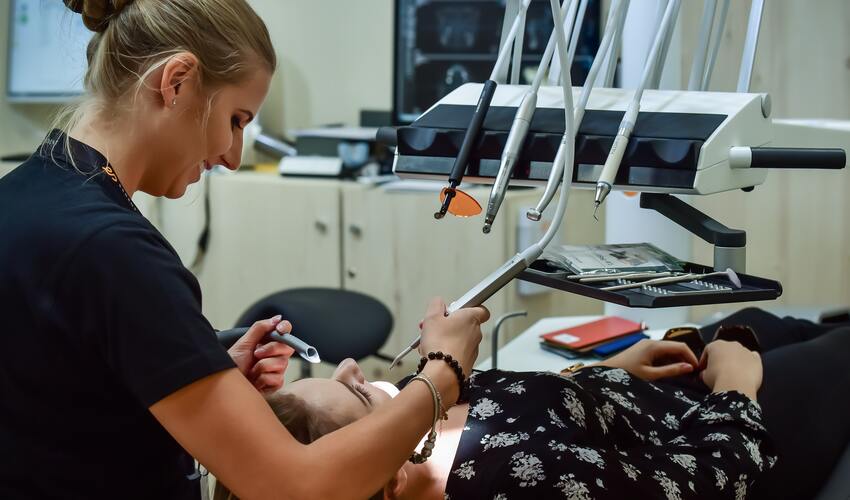Root Canal Procedures in Boiling Springs & Inman, SC

Relieve your pain. Restore your smile.
If a tooth becomes damaged through tooth decay or dental trauma, harmful bacteria may be able to find its way inside the tooth. If the nerves, blood vessels, and connective tissue inside the tooth become infected, a root canal treatment will need to be performed to prevent the infection from spreading, relieve any pain, and restore the tooth. If you or a loved one needs to schedule a root canal treatment with an experienced dentist in Boiling Springs please contact the Meadow Creek Family Dentistry team, and we will be happy to assist.
Questions About Root Canals
-
What happens during a root canal procedure?
Once the gums have been numbed, a small hole will need to be drilled into the top of the tooth so the inside of the tooth can be accessed. Then, the infected tooth pulp inside the tooth must be cleared out, and once the infection is treated, the tooth is carefully cleaned and sealed. After a root canal treatment has been performed, the tooth will most likely need a dental restoration like a dental crown placed over it to protect it from future damage and restore the appearance of the tooth.
-
How do I know if I need a root canal treatment?
There are a few signs that can indicate that a tooth infection is present and a root canal treatment will be needed. However, the only way to know for sure if you need a root canal is by scheduling an appointment with an experienced dentist. Common symptoms include:
- Consistent Tooth Pain
- Sudden Tooth Sensitivity
- Darkening of Tooth
- Tender of Swollen Gums
- Bump on Gums Near Tooth
-
Are root canals painful?
Root canal treatments tend to cause anxiety, even for patients who are otherwise calm and relaxed at the dentist. This is because root canals have a history of being painful, but fortunately, that is not the case anymore. Root canal treatments always begin with a local anesthetic being injected into the gums, which completely numbs the mouth. After your treatment, you may want to have some over-the-counter pain medication on hand to counteract any discomfort. Our office also offers nitrous oxide sedation to ease dental anxiety.
Are you anxious about root canal surgery?
At Meadow Creek Family Dentistry, we are committed to providing a safe, comfortable, and non-judgmental environment for all of our patients, and we don't want anxiety to be a barrier for your dental health. Our office gladly offers sedation dentistry for those who may require additional interventions due to dental anxiety.
If you need root canal surgery but are struggling with anxiety about the procedure, please contact us to learn more about your options.

